Headache fighting foods
Headaches are not isolated occurrences. They are symptoms of a number of physical and mental imbalances. One root cause can be your diet. Eating a balanced diet is fundamental in preventing and fighting headaches.

+ Low blood sugar levels can cause headaches. This is why maintaining a balanced level of sugar in the blood is important. This is not refined sugar but carbohydrates and fructose sugars that benefit the body (for example, from fruit). Some people who suffer from frequent headaches and migraines may be sensitive to certain food chemicals, both naturally occurring and artificial. If you suffer from headaches try avoiding foods that contain tiramines, common compounds found in a wide range of foods, including spinach, tomato, potato, small whole fish, tuna, liver, dark chocolate and alcoholic drinks, that affect the arteries in the head. The most common foods that have been found to bring on headaches are alcohol (beer in particular), chocolate, aged cheeses, brewer's yeast, aged/cured meats, sausages and herrings. Copper rich foods have also been found to cause headaches, because they transport tiramines through the body, causing pain. Among those, dried fruits, wheat germ and shellfish are included; similarly, citrus fruits can also increase the body's absorption of copper.
NOTE
You should always consult your doctor before changing your diet.
Other factors that provoke headaches are working in low lighting. In this case try to eat plenty of carotene which is found in carrots, leucoanthocyanins found in grapes and bilberry anthocyanins which can fortify your sight and eye health.
An overworked liver from removing toxins may be the cause of headaches; which is why it is important to avoid excess alcohol, fried and fatty foods. There are foods that tend to bring on intense headaches, which is why eating a balanced diet rich in nutrients might help to prevent and fight headaches.
VITAMINS AND MINERALS
Vitamins are organic substances with carbon, necessary for the process of breaking down calories and providing nutrients for living organisms. They don't provide our bodies with energy because they do not contain any calories. They can't be used as fuel, but without vitamins and minerals our bodies couldn't absorb the cell constructing and energy compounds we get from food. This is why vitamins and minerals are considered nutrients.
When we don't ingest the necessary amount of vitamins and minerals in our daily diets, we may suffer from physical ailments as a result; headaches can be one of these. Headaches may be the result of a deficiency of the essential vitamins and minerals that we need for our physical and mental balance and health. This is why a deficiency can cause pain. Including extra vitamins and minerals may help in the treatment and prevention of headaches. We have put together a guide to fundamental nutrients that might help to fight headaches:
OATMEAL A POTENT CEREAL
Oatmeal is recommended for fighting headaches and nervous ailments. It is rich in vitamins B 1 , B 2 , E, PP and D, in addition to niacin, carotene, sulfur, calcium, phosphorus, potassium, sodium, iron, magnesium, copper and zinc. Because it is high in phosphorus, oatmeal is a very good food for supporting brain activity.
OATMEAL SOUP
(for 2 servings) Add 2 or 3 tablespoons of oatmeal to a stock of carrots and squash. Allow to cook for 2 minutes and garnish with seaweed powder.
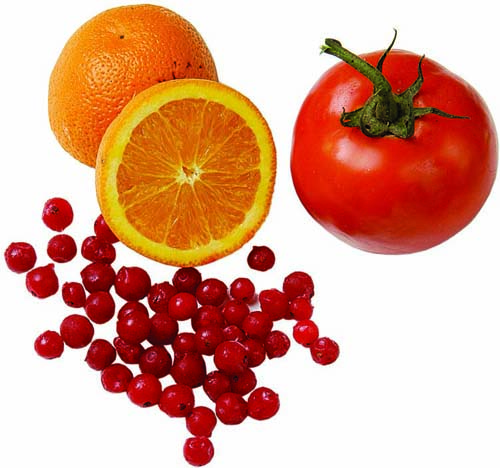
Vitamin B 1
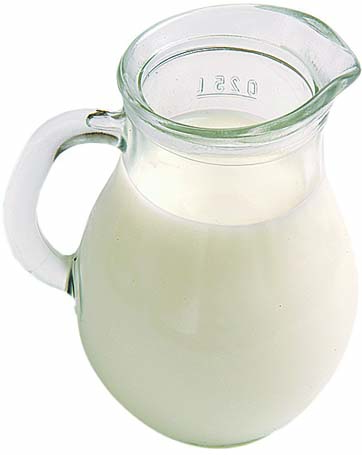
This vitamin is fundamental for the function of the nervous system; a lack of this nutrient may cause headaches, nervousness, lack of concentration, exhaustion and different types of nervous disturbance. You can get the necessary daily amount of vitamin B 1 by including oatmeal or wholewheat bread into your daily diet. Every 3½ oz/100 g of oatmeal contains 0,40 mg of vitamin B 1 (the same amount of white bread contains 0.09mg). B 1 can be found in meats, egg yolks, liver, milk, wholegrain cereals, sunflower seeds, beans, vegetables and yeast.
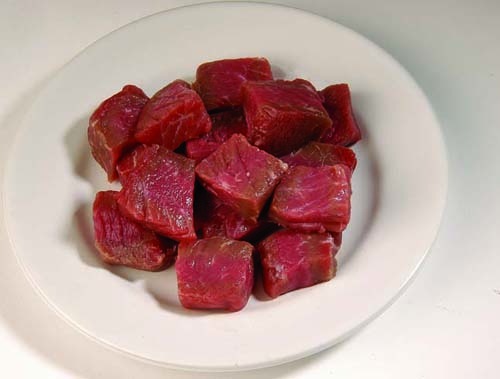
Vitamin B 2
A deficiency of this vitamin can provoke eye strain and headaches. As with all B complex vitamins, it has a relaxing effect and fights insomnia and headaches caused by postural tension, it is also an important vitamin for the skin. It is found in spinach (not frozen), broccoli, dairy products, meats, fish, eggs, brown rice, soy flour, alfalfa sprouts, green vegetables and kidney beans.
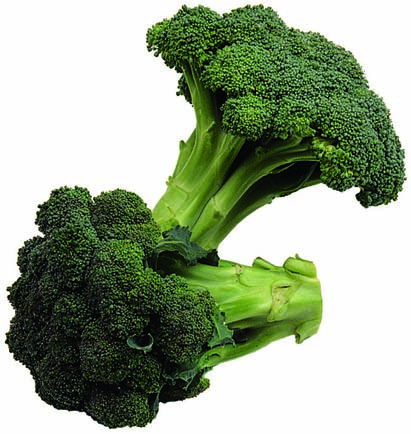
HEALTHY BREAKFAST
Dissolve ½ teaspoon of yeast in 1 cup of tepid water and add 2 tablespoons of oil (preferably olive oil) and sea salt. Add this mixture to 4 cups of wholewheat flour and mix until you have a stiff dough, so that it doesn't stick to the bowl. Add the amount of warm water necessary (approximately 2 cups of water). Let the dough rise for ½ hour and knead it again. Form small rolls with your hands, place on a rectangular baking sheet and let sit for another 30 minutes. Bake at a moderate temperature.
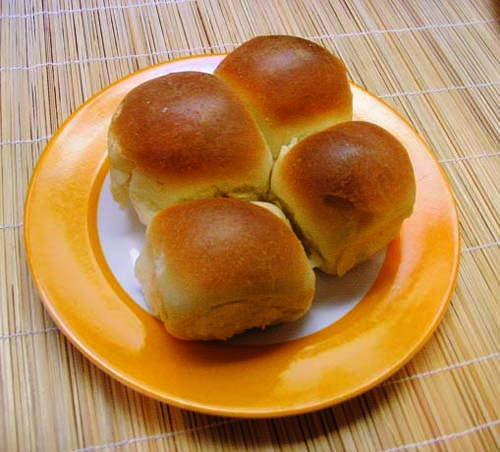
WHOLE GRAINS
Thus called because they are unprocessed grains, that is, the wheat grain, or the seeds and shells are not removed. They are helpful in preventing and fighting headaches, because, thanks to the fibers, they help to maintain a balanced level of blood sugar in the body. To prevent headaches, it is important to incorporate into your breakfast oatmeal, rye, wholegrain cereals, etc. In addition, whole grains help to fight mental fatigue and are rich in vitamins B and E and the minerals calcium, iron and zinc.
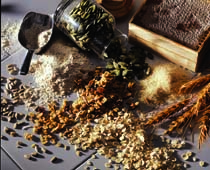
Vitamin B 3
Studies have shown that this vitamin helps to prevent and relieve headaches. This vitamin is fundamental for supporting the blood vessels’ function. Deficiency produces symptoms of nervousness and stress. Niacin (or vitamin B3) is not destroyed by heat, light, air or basic solutions. However, it's easily flushed out of the body by water, making it a water-soluble vitamin. It is found in fish, beans, wholewheat flour, soy, oatmeal, corn, tomatoes, potatoes, alfalfa and meats.
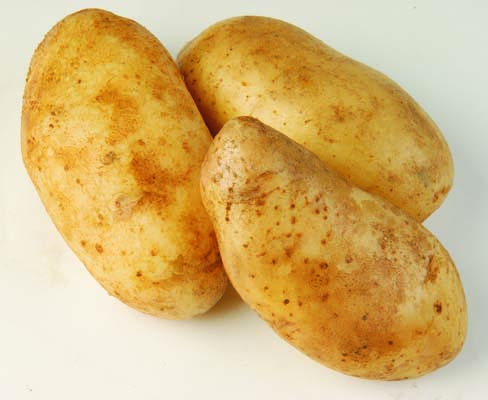
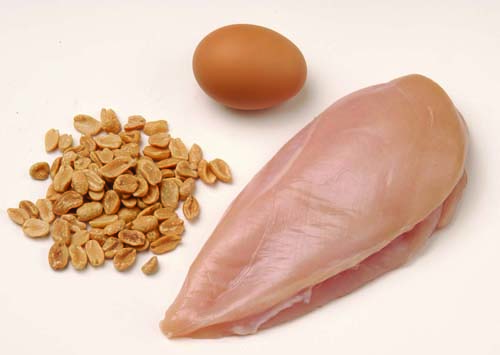
Vitamin B 5
This acid belongs to the B complex vitamin group, water-soluble vitamins with different functions. It helps to develop the nervous system, to release energy from foods and to convert fats and sugars into energy. Deficiency provokes hypoglycemia, and as a result, headaches. It also helps to prevent fatigue. Recommended daily dose is 6 mg, although athletes should get more vitamin B 5 , because they use more energy. Vitamin B 5 rich foods include meats, especially liver, poultry, fish; fresh fruit, dairy products, cereals and vegetables.
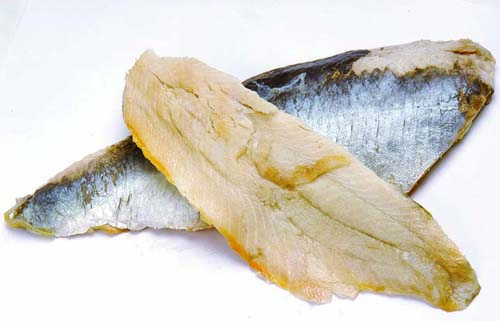
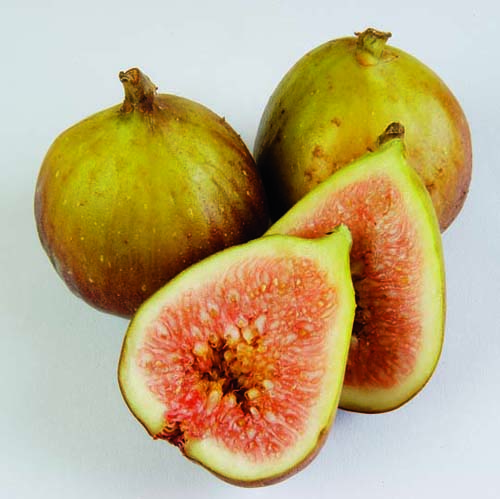
Vitamin B 6
This vitamin is necessary for increasing the levels of serotonin (natural chemical found in the brain) that acts as an anti-depressant and as a neurotransmitter, lowering the risk of continuous pain. Various studies have shown that B 6 can be used to fight headaches and mental fatigue. If taken in capsules, you shouldn't exceed 200 mg per day. It is found in potatoes, bananas, wholegrain cereals, raisins, lentils, peanuts, liver, turkey and tuna.
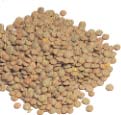

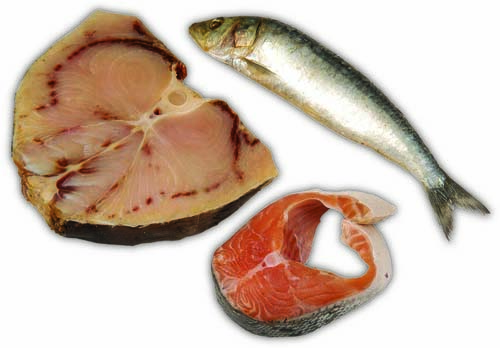
GARLIC
Allicin is the most powerful active component found in garlic; it also contains enzymes and aminoacids, which have prolonged antibacterial action. It is also abundant in minerals such as zinc and magnesium and vitamins C, A, B 1 , B 2 , PP and E. It stimulates the production of bile (which helps to calm stomach cramps) and improves your appetite. Garlic supports digestion, fights against swelling, gas, stimulates gastric secretions and strengthens the stomach and intestinal lining. It's important to know that for garlic to have potent effects, it's best to use garlic overtime, eating 3 cloves of garlic a day, 900 mg of garlic powder or 9 capsules.
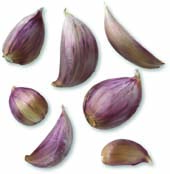
Vitamin B 12
Deficiency symptoms can take 2 to 3 years to develop and are clinically recognized for their effect on the nervous system, causing irritability, which can bring on tension headaches. Also called cyanocobamin, it is an important vitamin in the forming of red blood cells and the regeneration of tissue. Because it is hydro-soluble, up to 30 percent of vitamin B 12 is lost when meat and fish are boiled. Basic food sources include liver, meats, fish, entrails, eggs and in small quantities, milk and other dairy products; distributing these foods in a balanced way can cover the body's needs for this vitamin.
Vitamin C
The amount of vitamin C in the body decreases when under stress; this is why a proper intake of vitamin C is important for people who are under a lot of stress, to prevent colds and headaches. It is calculated that eating one citrus fruit a day is enough (but not before meals because it increases the absorption of copper by the body, which generates headaches). Vitamin C should be consumed daily since it doesn't accumulate. It is found in citrus fruits, some vegetables, strawberries, kiwis, guavas, currants, oranges, tomatoes and red peppers.
Vitamin E
Also called “alpha tocopherol”, this vitamin is fat-soluble and is essential for the body, it helps to prevent headaches caused by eye strain. In general, it maintains the body's health by protecting the body from toxic molecules resulting from normal metabolism, ones that enter the body through the respiratory system and mouth. It is mostly found in egg yolks, vegetable oils (soy, peanut, rice, cotton and coconut), celery, green leafy vegetables, cereals (especially wheat germ) and wholegrain breads.
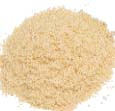
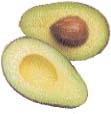
BENEFICIAL LIVER
Liver is the most important source of vitamin B 12 . Although it tends not to be included in the daily diet, there are ways to prepare liver as a tasty treat.
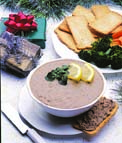
PATÉ EXPRESS
Sauté a liver, and then grind it or use a hand held blender, add ½ shredded or finely chopped onion add 1 chopped hardboiled egg, add salt and pepper to taste. This is a very tasty paté to put on toasted wholewheat bread.
Folic acid
This vitamin belongs to the B group and is water-soluble. It can't be produced or stored inside the body, which is why it needs to be included in the daily diet. A lack of this vitamin can affect the nervous system (producing permanent nervousness, insomnia and headaches caused by tension). It is beneficial during menopause, intervening by increasing levels of estrogen, which may cause headaches and overall exhaustion. It is a fundamental vitamin during pregnancy and breastfeeding. It might provide benefits in the treatment of liver diseases, tumors, alcoholism and lack of vitamin C and B 12 . It is found in green leafy vegetables, garden vegetables, fruits, beans, and potatoes (since this vitamin is destroyed by heat, it's best to eat fresh foods, without cooking or with only minimal cooking).
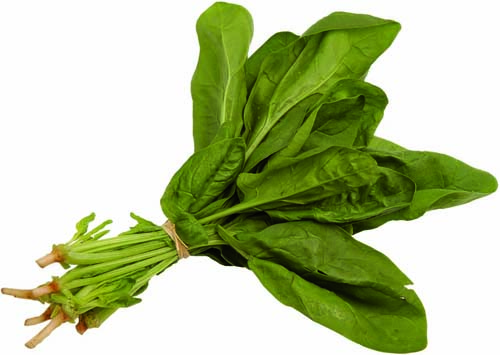
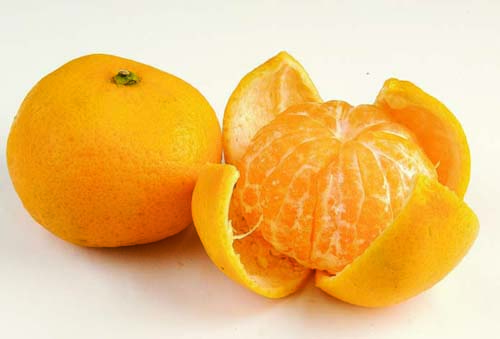
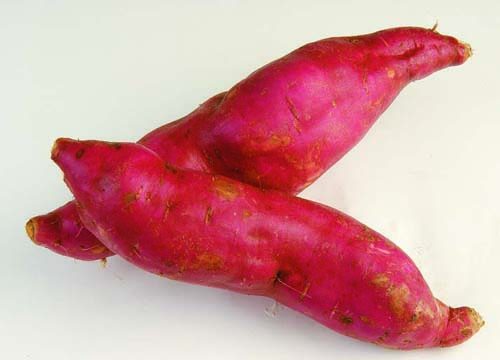
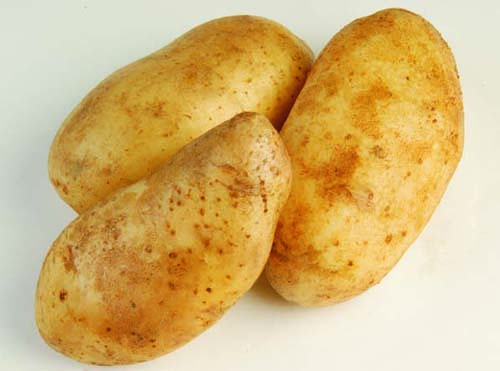
MIRACULOUS CELERY
Celery is great vegetable that might relieve your headaches and other ailments caused by stressful situations. Its composition is rich in potassium, phosphorus and vitamins C, B 1 and E, which makes it a great food against intense headaches, because these active components can calm pain. In medieval times it was considered a miracle plant, because of its ability to clear the mind and fortify the spirit. Today it is proven that the tranquilizing properties of its essential nutrients can help to regulate the functions of the central nervous system. Because of its diuretic qualities, it contributes to fighting headaches caused by high blood pressure.
Warning. It is not recommended to expose your skin to direct sunlight after eating a lot of celery, because it makes your skin more sensitive to the sun.
CALMING JUICE
Boil a celery plant for 2 minutes. Cut it in pieces and place it in a juicer to extract the juice (which you should drink 2 times a day). You can also blend a fresh plant in a blender (roots, stalks and leaves), with enough water. Drink 2 or 3 times a day. This juice can help to calm headaches.
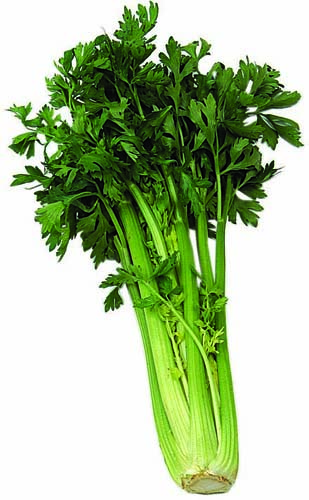
Zinc
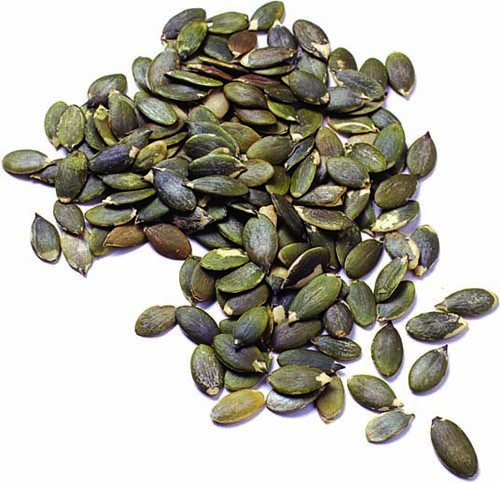
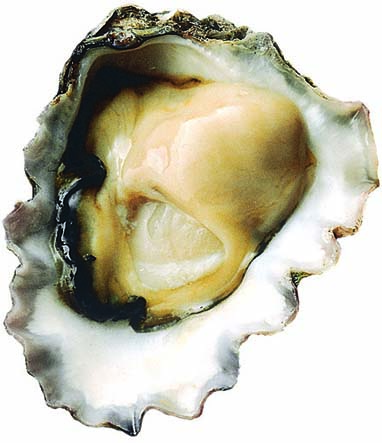
Component of insulin, which is consumed faster when you are in stressful situations. Deficiency can cause headaches. It is found in garlic, oysters, aloe vera, pumpkinseeds, ginger, lamb, liver, green peas, milk, egg yolks and parsley.
CIDER VINEGAR
Vinegar, in all its varieties, has been used for hundreds of years not only as a condiment but also as a drink and natural remedy. It contains minerals and microelements such as calcium, phosphorus, magnesium, sodium, and silicon; it is rich in potassium. It has regenerative and curative properties which are the result of the synergy of all its active ingredients. It is used for chronic headaches.
AGAINST MIGRAINES
Add 2 tablespoons of cider vinegar and 1 spoonful of honey to 1 glass of hot water and mix. Drink 2 or 3 glasses of this mixture a day, in small sips, to calm chronic headaches.


Chrome
When the body lacks this mineral it is very possible that insulin levels in the body will become disrupted and that the breakdown of carbohydrates, aminoacids and fats will change. Chrome works along side insulin to regulate blood sugar levels; it decreases the amount of fat and increases muscular mass. It is found in egg yolks, red meat, wheat, wholewheat flour and molasses.
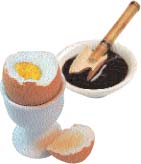
Phosphorus
This mineral is the most abundant in the body, after calcium. It is fundamental for the body's chemical reactions because it captures, transfers and stores energy. It is very important for nerve tissue, supporting the nervous system's functions and helping to recover from mental fatigue accompanied by headaches and from difficult concentrating. Deficiency causes memory loss, dizziness and migraines. For it to be properly absorbed into the body it's best to combine it with calcium and vitamin D. Phosphorus rich foods include cod fish, milk, dairy products, wholegrain cereals, nuts, almonds, peanuts, figs, mushrooms, celery, onion, cauliflower, parsley and leeks.
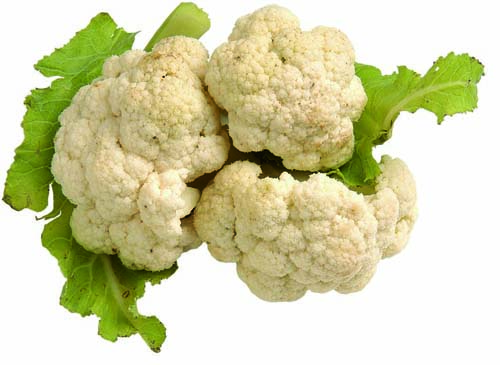
CARROTS FOR YOUR SIGHT
It is popular knowledge that carrots have natural properties that support healthy vision. It is the most vitamin and mineral rich root vegetable which is great for headaches caused by eyesight problems. It is rich in phosphorus, this vegetable has excellent toning effects for tired minds and nerves.
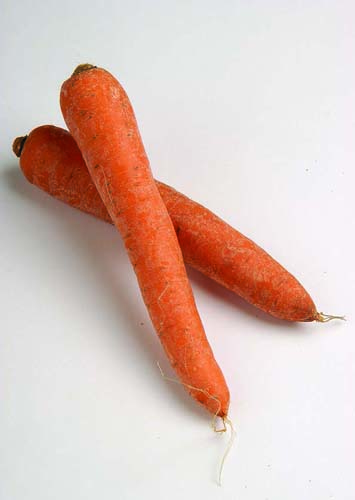
Iron
Lack of iron causes physical and mental fatigue, headaches and irritability. One of its main functions is to take oxygen to the tissues and brain, which is why a lack of iron can cause pain and nervous tension. It intervenes in the action of breathing; it combines with proteins to form red blood cells and to transport oxygen. It is recommended that those who suffer from headaches and tension ingest iron because it activates vitamins from the B group and stimulates physical resistance. It is found in seaweed, liver, eggs, spinach, lentils and sardines.
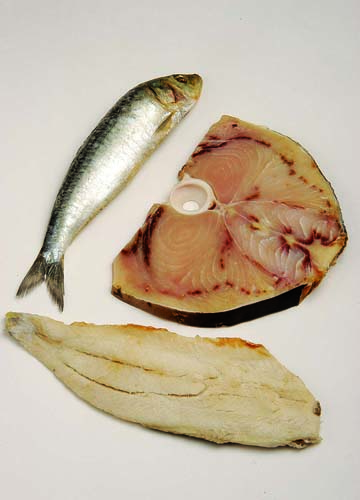
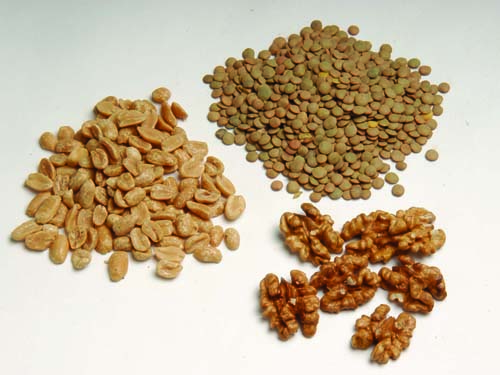
MEDICINAL JUICE
For carrots to be used as a medicinal treatment, it is best to use the juice extracted from carrots. It is prepared by washing well a large carrot and grate it over a thin linen cloth. Fold over the cloth and wring out the grated carrot into 1 cup or glass (a medium carrot makes at least I cup of juice).
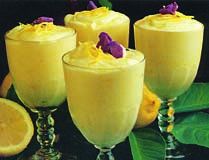
Magnesium
An important anti-stress nutrient, which helps to keep the blood veins healthy. It reduces the nerves’ excitability and promotes muscle relaxation. It helps to prevent headaches associated with tension and nervousness. It also helps to fight against irritability. Magnesium deficiency tends to be associated with other nutrient deficiencies, caused by a poor diet full of frozen and processed foods. It is found in brown sugar, almonds, whole cereals, nuts, soy beans, sesame seeds, dried figs and green garden vegetables.
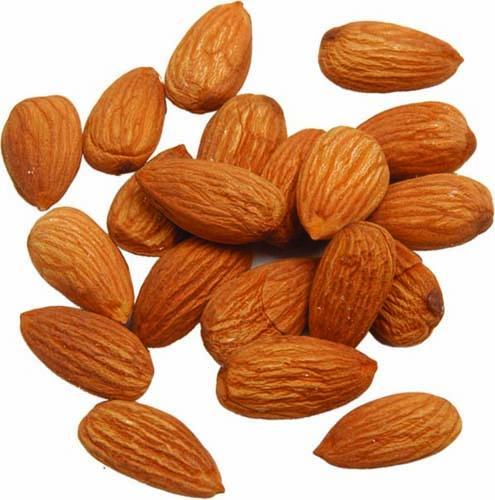
PEAR MOUSE
Dissolve 2 tablespoons of rice flour in 1 glass of milk and place over the stove in a pot, while you add 1 teaspoon of sugar. When it comes to a boil, take it off the stove and add a grated or blended pear, lemon rind from ½ lemon and 1 egg white whipped until firm. Mix gently with a wooden spatula. Distribute to cups and if you wish refrigerate. This mouse can be served room temperature or chilled.
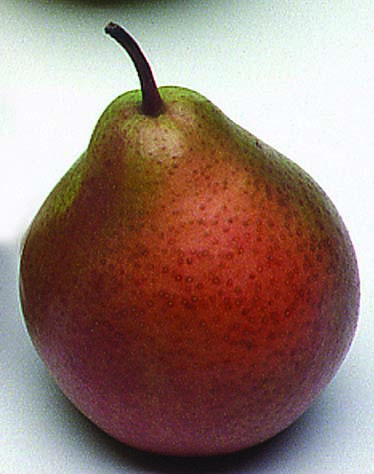
SWEET TEMPTATION
Some fruit rich in sugars are very beneficial in preventing and fighting against headaches caused by a lack of nutrients in the body. Pears for example are rich in magnesium, potassium, vitamins B 1 , B 2 , B 6 and E in addition to calcium, phosphorus and copper. Pears are also abundant with sugars and fibers, digestible, low in calories and low in sodium. They provide vitamins, among them folic acid, one of the vitamins in the complex B group. They are abundant in potassium and act directly supporting a healthy nervous system.
Warning. It can aggravate cases of gastritis or diarrhea.
Potassium
Essential mineral for the nervous system. Deficiency can cause headaches, provoked by nervousness and chronic stress. It can also produce insomnia and depression. It is found in celery, cauliflower, lettuce, beans, bananas, dates and spinach.
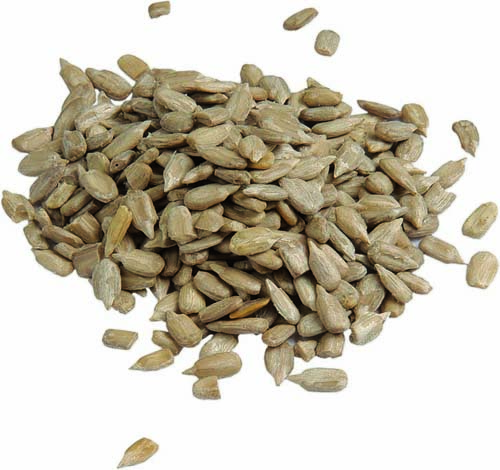
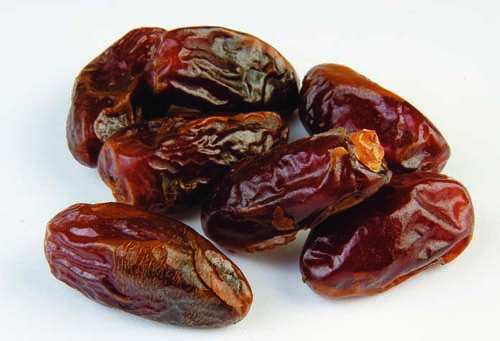


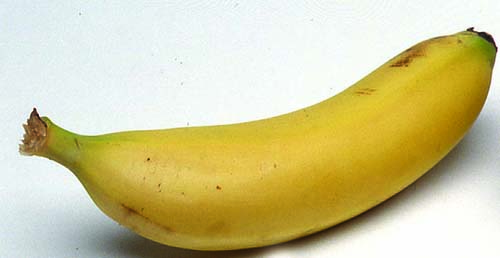
SUNFLOWER SEEDS
Seeds from this flower are rich in vitamin E, phosphorus, magnesium and potassium, they can be very good for fighting headaches and dizziness. They are aromatic and tasty; they can be eaten raw or roasted and salted. They can also be added to various baked goods.
Warning. They are high in fats, which gives them lubricating and laxative properties. As a result, people with digestive problems should eat them in moderation.
SWEET PAIN RELIEVER
Roughly grind ½ tablespoon of sunflower seeds, and mix them with 1 tablespoon sugar. Add water and drink before going to bed.

Comment about this article, ask questions, or add new information about this topic: